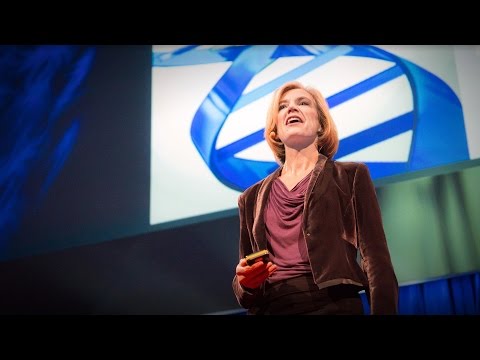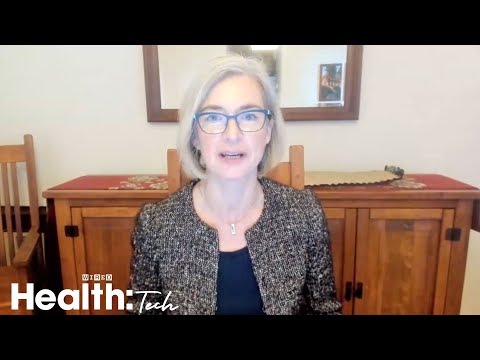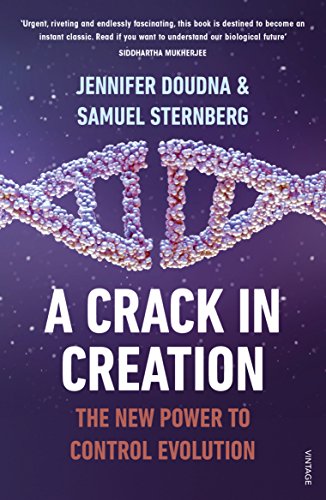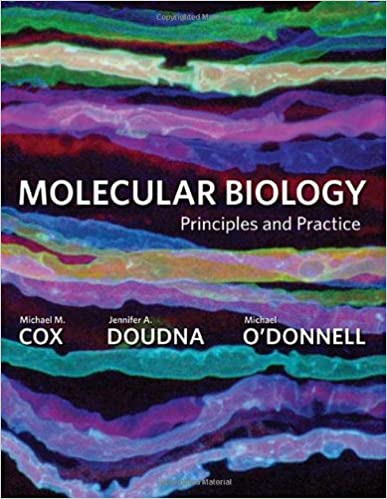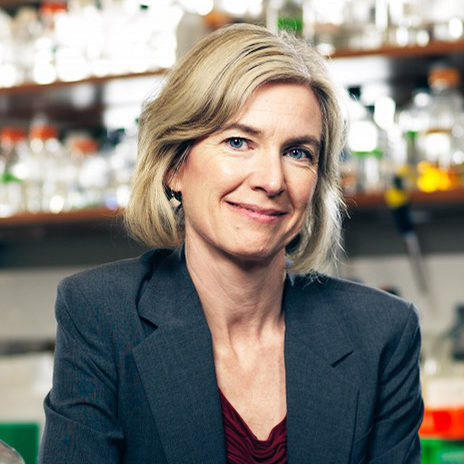
Jennifer Doudna, PhD
“The power to control our species’ genetic future is awesome and terrifying. Deciding how to handle it may be the biggest challenge we have ever faced.”
Dr. Jennifer Doudna is best known for her co-discovery of a molecular tool known as clustered regularly interspaced short palindromic repeats (CRISPR)-Cas9. The 2012 discovery of CRISPR-Cas9 provided the foundation for gene editing, enabling researchers to make specific changes to DNA sequences in a way that was far more efficient and technically simpler than earlier methods. She was awarded the 2020 Nobel Prize in Chemistry along with her collaborator Dr. Emmanuelle Charpentier for the development of a method for genome editing.
Her co-discovery of CRISPR-Cas9 genetic engineering technology, with collaborator Emmanuelle Charpentier, changed human and agricultural genomics research forever. This genome-editing technology enables scientists to change or remove genes quickly, with a precision only dreamed of just a few years ago. Labs worldwide have re-directed the course of their research programs to incorporate this new tool, creating a CRISPR revolution with huge implications across biology and medicine. In addition to her scientific achievements and eminence, Dr. Doudna is also a leader in public discussion of the ethical and other implications of genome editing for human biology and societies, and advocates for thoughtful approaches to the development of policies around the use of CRISPR-Cas9.
Dr. Doudna is the Li Ka Shing Chancellor’s Chair and a Professor in the Departments of Chemistry and of Molecular and Cell Biology at the University of California, Berkeley. Her lab at UC Berkeley, the Doudna Lab, pursues a mechanistic understanding of fundamental biological processes involving RNA molecules. Dr. Doudna is also an investigator with the Howard Hughes Medical Institute, senior investigator at Gladstone Institutes, and the founder and President of the Innovative Genomics Institute. She is a co-founder of Caribou Biosciences, Editas Medicine, Intellia Therapeutics, Mammoth Biosciences, and Scribe Therapeutics.
In addition to being recognized by TIME as one of the “100 Most Influential People” in 2015 and a runner-up for “Person of the Year” in 2016, Dr. Doudna has been honored with the Breakthrough Prize in Life Sciences (2015), the Japan Prize (2016), Kavli Prize (2018), the LUI Che Woo Welfare Betterment Prize (2019), and the Wolf Prize in Medicine (2020). She is the co-author of “A Crack in Creation,” a personal account of her research and the societal and ethical implications of gene editing, and a member of the National Academy of Sciences, the National Academy of Medicine, the National Academy of Inventors, the American Academy of Arts and Sciences, and a Foreign Member of the Royal Society.



